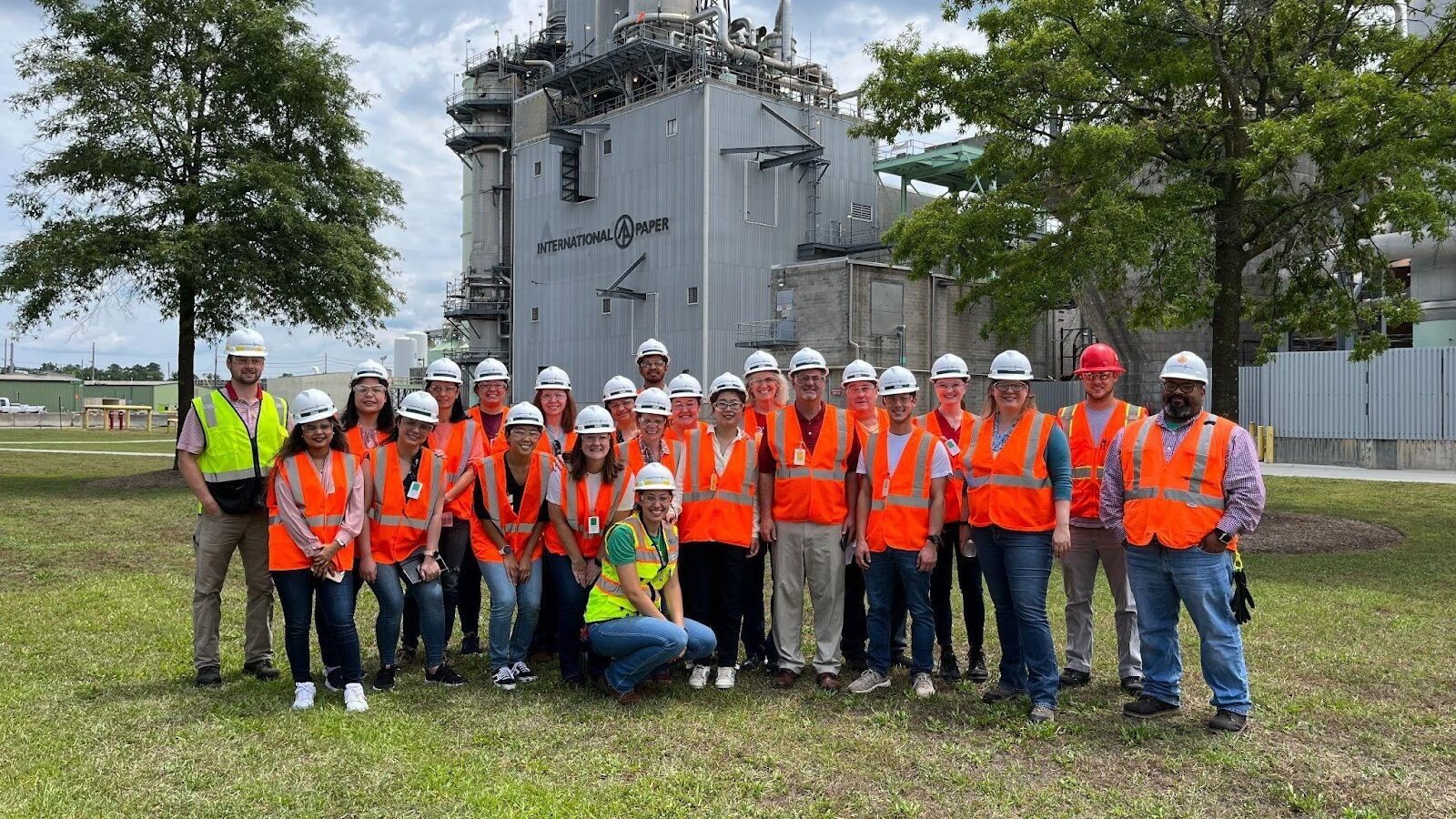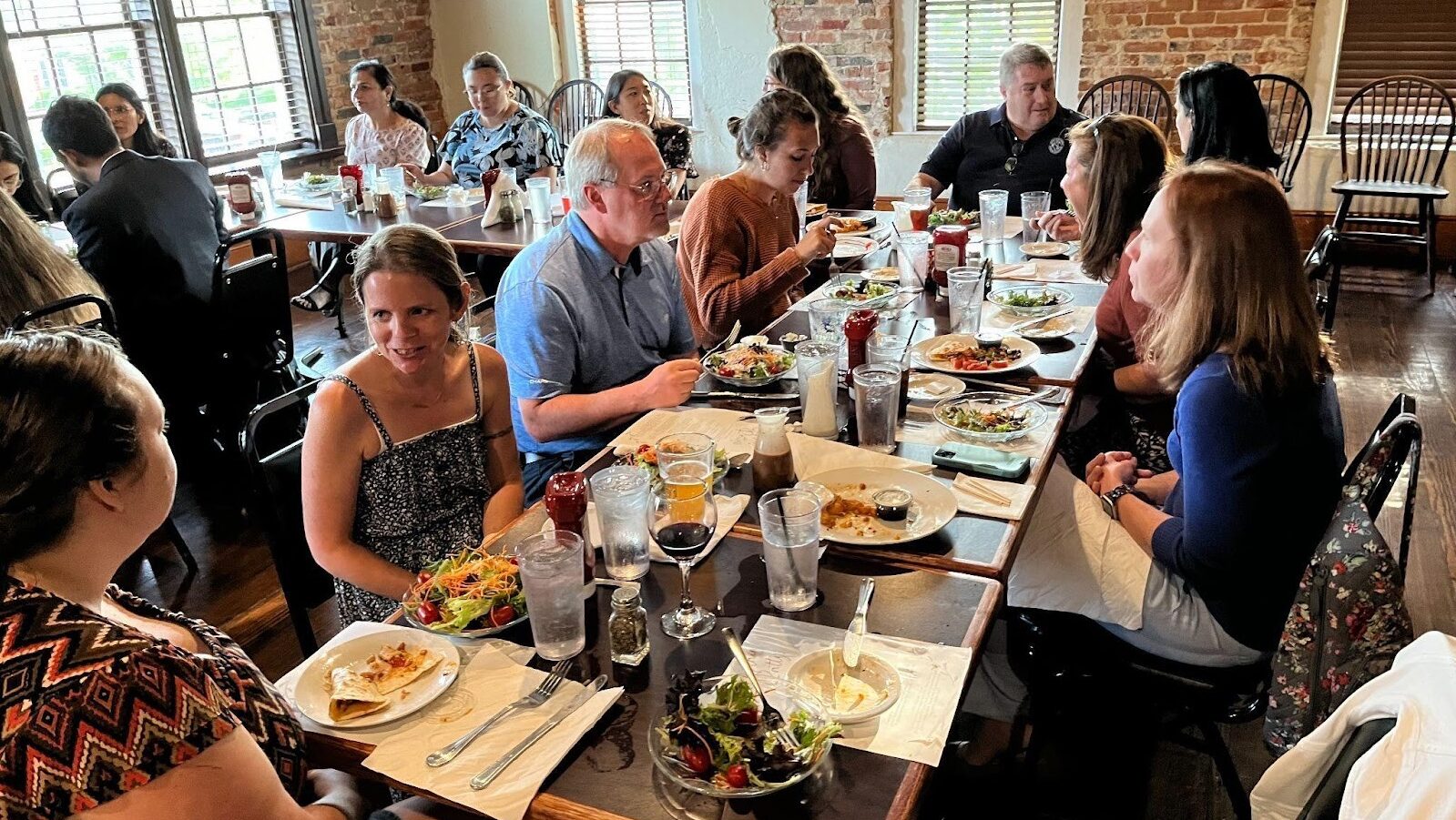Field Trip to New Bern Sparks Interest in Soft Biodegradable Electronics

A field trip focused on bio-based flexible electronics was hosted for high school science teachers and NCSU and UNC researchers in New Bern, North Carolina, June 10-11, 2022. The experience included seven science teachers and eleven university faculty, staff, and students and was co-sponsored by a USDA educational grant and NSF grant. The USDA PI Richard Venditti, Elis Signe Olsson Professor in the Department of Forest Biomaterials, explained, “We wanted to provide the science teachers and graduate students time to discuss how electronics could be part of the circular economy and to experience in person a vibrant cellulosic fiber processing plant that can produce renewable raw materials in the future for electronics. The trip brings together our research activities in our current USDA project and our newly funded NSF biomanufacturing project.”
The graduate students gave presentations at a dinner banquet on Friday night, followed by a tour of International Paper’s New Bern Mill on Saturday morning (special thank you to the IP hosts and tour guides: Curtis Brown, Megan Yang, Natalie Laux, Ryan Lilley, and Jake Forte). The event was part of a new grant project, Eco-Manufacturing of Recyclable Soft Electronics.
The project brings together an interdisciplinary team of scientists and engineers to conduct research on soft electronics and develop solutions to address the challenge of electronic waste. In collaboration with science educators, the team will carry out a professional development program with science teachers from predominantly rural, high poverty areas of the state. NSF PI Yong Zhu, Andrew A. Adams Distinguished Professor in the Department of Mechanical and Aerospace Engineering, was excited about the collaboration with rural high schools and the project’s potential to reach underserved students. He said, “Workforce development is a significant part of our new NSF project. This project is conducting truly interdisciplinary convergence research. We will use this project as a platform to train a diverse cohort of future engineers and scientists in the emerging area of Eco Manufacturing of Recyclable Soft Electronics.” Fifteen teachers will participate in the program, which will include an online course and in-person workshop to learn about the circular bioeconomy and soft biodegradable electronics, as well as implementing new lessons in their classes to promote high school students’ awareness of and interest in these emerging technologies and related careers. Some of the science teachers are active participants in the USDA-funded program, which is in its final year, and will continue with the new NSF eco-manufacturing project.

Meg Blanchard, Professor of Science Education and Co-PI on both projects, is coordinating the educational development activities with Dr. Richard Venditti. She said, “The field trip was an enriching experience for all of the participants. Neither the classroom teachers nor several of the graduate students had ever been to a pulp mill. They also had opportunities to interact throughout the two-day field trip.” The teachers learned about the papermaking process in a previous online course and appreciated seeing the processes in action and making connections with their course learning. They also saw value in learning about specific job opportunities and career pathways that they can discuss with their students in class. One teacher said being able to “talk to people at the facility will help me as an educator to inform my students about the experience.” Another teacher said, “I think that there are some truly innovative careers in green electronic devices [and] the paper mill offers jobs for all types of students with a range of academic backgrounds.”
- Categories: